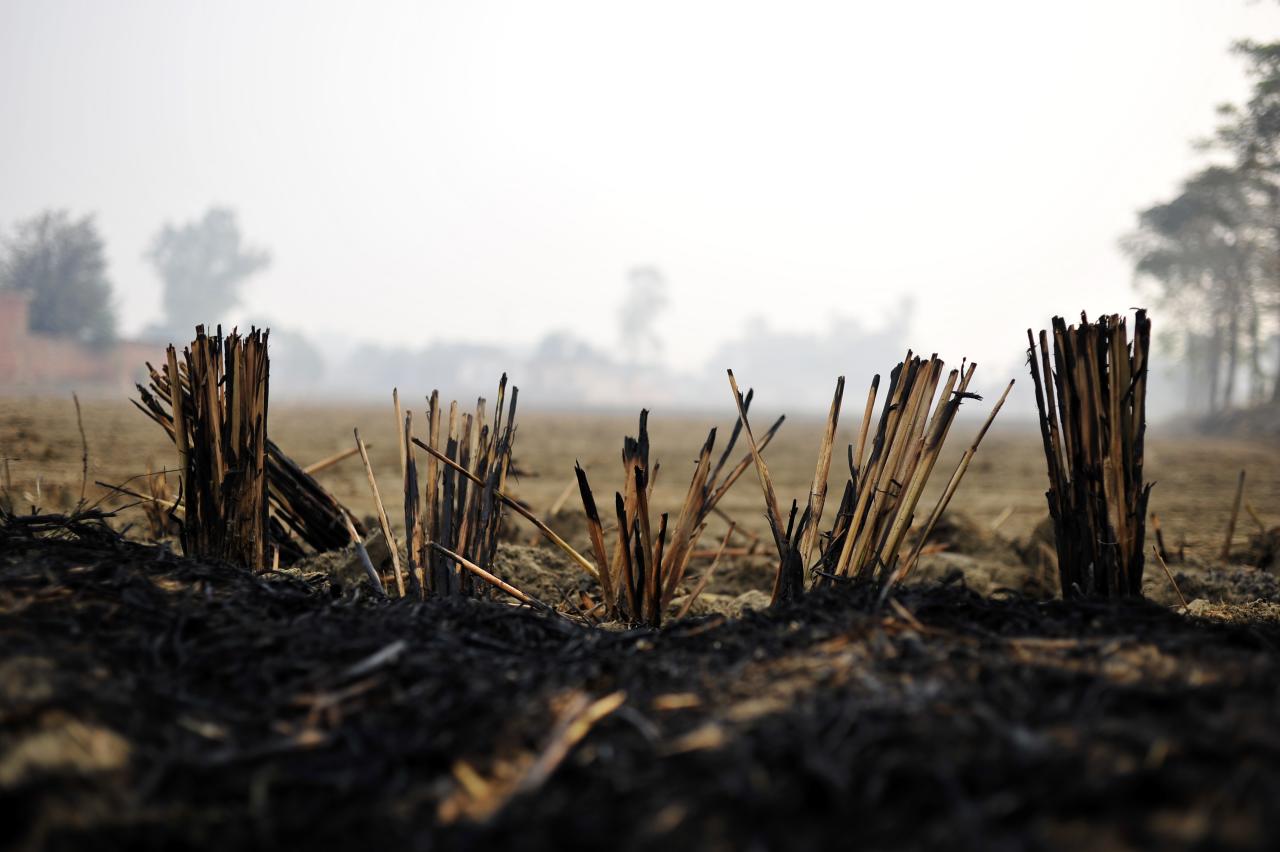Photo Credit: ©2011CIAT/NeilPalmer (Creative Commons Attribution)
India is among the world’s most land-scarce countries relative to population. By 2050, using current population growth projections, land per capita in India will decline four fold: China will have four times more land per capita and Brazil some 20 times.[1] Security of property rights and land titles are fundamental to well-functioning land and housing markets, themselves essential for robust economic activity in agriculture, manufacturing and services. Land market distortions in India were estimated in 2001 to reduce annual GDP growth by some 1.3 percent.[2] It is more than likely that this annual reduction in GDP growth has grown substantially since then. Add to this two more recent and pressing concerns that are directly related to the functioning of land markets and land use, the first on climate change and how best to build climate resilience in India, and the second on India’s jobs crisis and how that is related to the use of land for non-agricultural purposes.
Land-related disputes in India account for about two-thirds of all civil litigation, with Gujarat (98%), Himachal Pradesh (95%), Karnataka (92%) and Haryana (89%) leading the pack.[3] As much as 90 percent of land parcels are subject to legal dispute, creating insecurity of ownership and in the business climate, discouraging new investment and posing a challenge for governance.
Land policy in India has suffered from a triple deficit. The first deficit comes from land governance and institutions, built around land revenue pre-Independence, and then, post 1947, around rural land to the tiller and controlling urban land use. The seconddeficit comes from policy apathy fed by vested land interests and patronage politics The third deficit comes from a paucity of land policy research, evaluation, and robust data, leading to poorly designed, implemented and monitored government programs.
This situation on the ground is worlds removed from India’s aspirations of what is called conclusive land titling in the near future, and the promise of tenure security for hundreds of millions of citizens. Recent surveys show that some 22 percent of the Indian population feels insecure about their land and property rights.[4] There is a long way to go.
The challenge, in this context, has been threefold: a) lack of interest and awareness of land governance related issues; b) lack of knowledge on issues related to land governance; and c) lack of capacity to deal with land issues.
My own involvement with land-related issues deepened when, as the Director-General of the National Council of Applied Economic Research (NCAER), we launched the NCAER Land Policy Initiative in April 2019. This initiative built on NCAER’s prior analytical work on land, its more than six decades of experience with field data collection, and its long-standing relationship of trust with central and state governments. The NCAER Land Policy Initiative’s goals were to: (1) raise official and citizen awareness of distortions in land markets and their cost to the economy and vulnerable groups; (2) produce and curate evidence to suggest solutions and rankings that could nudge States through competitive federalism to improve their land administration, records and services; (3) provide advice and solutions to States; and (4) help build a research community of analysts and experts on land issues in India.
NCAER released the NCAER Land Records Services Index (N-LRSI) in February 2020, ranking Indian States and Union Territories on the extent, quality, and accessibility of the digitisation of their land records.[5] NCAER also put out an N-LRSI State Compendium with tailored recommendations for states to improve their land records.[6] This was followed in 2021 by the N-LRSI 2020-21 Report, which offered an opportunity to measure progress made by states and union territories on the parameters that were measured by the N-LRSI 2019-20.[7]
In this journey of the increasing need for analytical and policy clarity on land related issues, the India Land and Development Conference (ILDC), now in its eight year, has served a vital role. ILDC is the premier forum in India for bringing together land experts, practitioners, policymakers and stakeholders. Continuing this tradition, ILDC 2024, to be held November 5-7, will highlight the critical role of land security in fostering inclusive and sustainable development and in building resilience to climate change. ILDC 2024 will feature innovative and thought-provoking contributions from individuals, communities, and government and non-government institutions. Continuing the tradition of previous years, ILDC 2024 will facilitate thought-provoking and interdisciplinary conversations through presentations, panel discussions, round tables, master classes, lightning talks, plenaries, keynote addresses, and networking spaces. The run up to ILDC 2024 will feature a doctoral workshop on land governance and a media workshop on land reporting.
ILDC 2024 will again be held on the beautiful Pune campus of FLAME University, which so graciously hosted ILDC 2023. If you are interested in issues related to land, ILDC 2024 will be the forum to not miss.
More details on ILDC 2024 and how to attend the conference can to be found at https://www.ildc.co.in
[1] "Land-shackled-I & II" Devesh Kapur, T. V. Somanathan, Arvind Subramanian, Business Standard, July 21, 2014.
[2] India: The Growth Imperative, MGI McKinsey Global Institute, 2001.
[3] Access to Justice Survey 2015-16, Daksh, 2016.
[4] Prindex Comparative Report: A Global Assessment of Perceived Tenure Security from 140 Countries, ODI-Global Land Alliance, July 2020.
[5] The NCAER Land Records and Services Index: N-LRSI 2020, NCAER, February 2020.
[6] The NCAER Land Records and Services Index: N-LRSI 2020, Performance and Policy Actions: States/UTs Compendium, NCAER, February 2020.
[7] The NCAER Land Records and Services Index 2021, Overview, NCAER, 2021; and The NCAER Land Records and Service Index: NCAER Land Policy Initiative Project Brief for Bihar, Goa, Himachal Pradesh & Karnataka, NCAER, November 2021.



